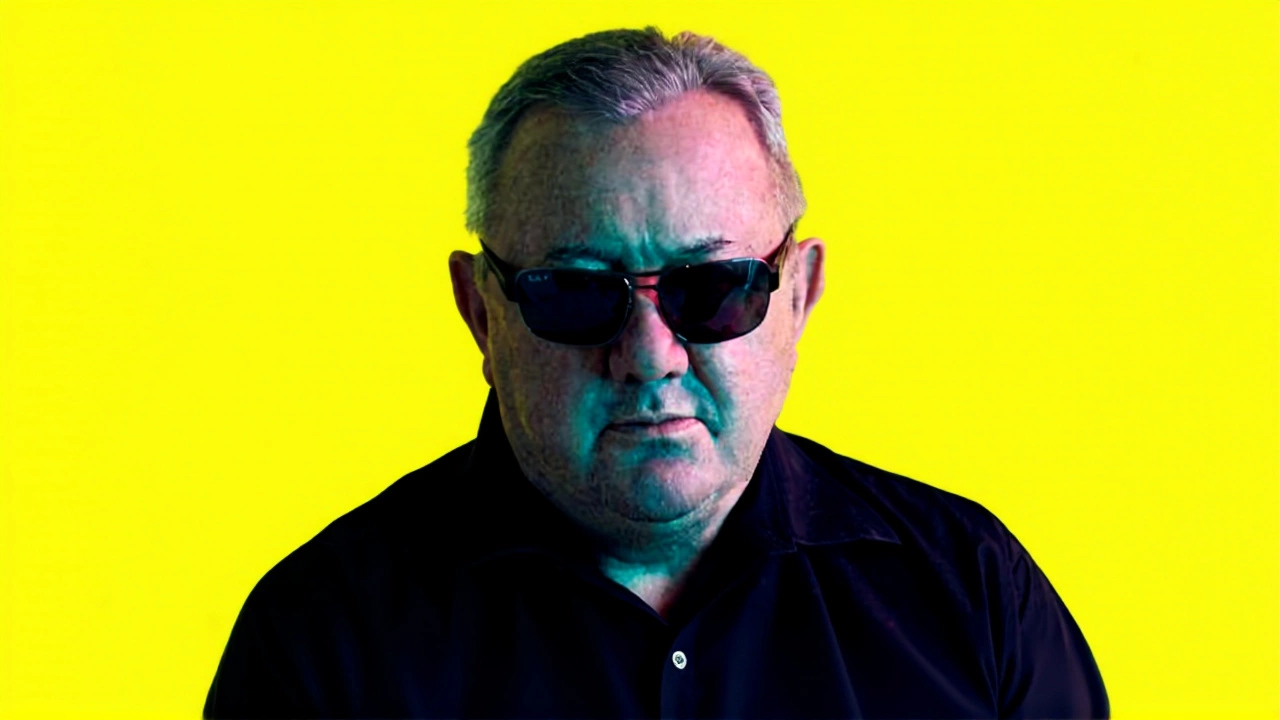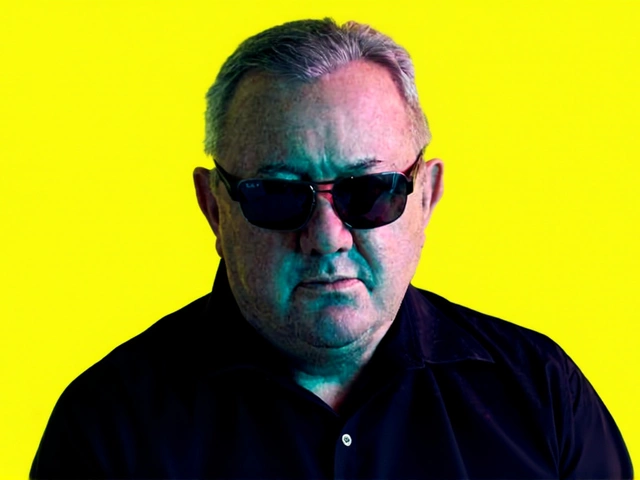When David James Ball, the synth‑pop pioneer best known as one half of Soft Cell, died on 22 October 2025 at age 66, the music world felt a sudden loss.
The death was first confirmed by Stereogum in an article published on 23 October 2025, which cited the date of death but left the location and cause undisclosed. Ball’s passing marks the end of a five‑decade career that helped shape modern electronic music.
Early Life and Musical Roots
Born on 3 May 1959 in Blackpool, Lancashire, Ball attended the independent Arnold School before enrolling at Leeds Beckett University (then Leeds Polytechnic). It was during his time at Leeds that he met vocalist Marc Almond, and the two formed Soft Cell in 1978.
The duo’s early gigs were raw, using cheap synthesizers and a DIY ethic that reflected the post‑punk spirit of the era. Their first record, the 1980 single “Memorabilia,” caught the eye of Some Bizzare Records, setting the stage for a breakthrough.
Soft Cell and the Rise of Synth‑pop
Soft Cell’s 1981 cover of “Tainted Love” became a cultural juggernaut, lingering on the UK Singles Chart for a record‑breaking 43 weeks. The track sold over 1.3 million copies in the UK alone and propelled the duo to international fame.
During Soft Cell’s initial run (1978‑1984), Ball contributed keyboards, programming, and production on four studio albums, including the seminal Non‑Stop Erotic Cabaret. After the group’s 1984 split, Ball co‑founded the electronic outfit The Grid, which blended dance beats with ambient textures.
Ball’s solo debut, In Strict Tempo (1983), showcased his knack for intricate synth arrangements. Over the years he amassed credits on 87 releases, spanning solo work, Soft Cell, The Grid, and collaborations with artists such as Ingo Vauk and Chris Braide.
The Grid and Later Projects
The Grid’s first album, Electric Head (1990), featured the club‑hit “Swamp Thing,” which peaked at No. 5 on the UK Dance Chart. A follow‑up, 456 (1994), further cemented Ball’s reputation as a versatile producer.
In 2016, Ball teamed up with cultural historian Jon Savage for the experimental album Photosynthesis, released by Cold Spring Records. The record was praised for its avant‑garde soundscapes and marked Ball’s continued relevance in the underground scene.
Ball’s remix work stretched from the mid‑80s through 2019, touching tracks by The The, Marc Almond’s solo releases, and numerous B‑side gems. His influence can be heard in the DNA of contemporary electronic acts, from Depeche Mode to the Pet Shop Boys.
Tributes and Industry Reaction
Within hours of the Stereogum report, musicians flooded social media with memories. Martin Gore, Depeche Mode’s chief songwriter, tweeted, “Dave’s work was a blueprint for anyone trying to make synth music that feels human.” Neil Tennant of Pet Shop Boys posted, “We lost a true architect of the sound that defined a generation.”
Richard Norris, co‑founder of The Grid, posted on Instagram, “Dave’s vision was always a step ahead. The world feels a little dimmer without his keyboards.” While no official statement had emerged from Marc Almond by 24 October 2025, fans noted his silence as a sign of deep personal grief.
Soft Cell’s official accounts, managed by Some Bizzare Records founder Stevo Pearce, shared a link to the Stereogum article but stopped short of a memorial post. Industry insiders expect a formal tribute concert later this year, potentially featuring alumni from the 80s synth scene.
Legacy and What Lies Ahead
Ball’s impact is quantifiable: 12 Soft Cell releases, 15 Grid releases, and roughly 60 collaborative or production credits. His catalog is archived on Discogs, which lists 87 distinct entries under his name. The British Phonographic Industry (BPI) awarded Soft Cell a silver certification for “Tainted Love” in 1982, a testament to their commercial reach.
Beyond sales, Ball helped legitimize electronic music as an art form in the UK. He taught workshops at Leeds Beckett University’s music department in the early 2000s, inspiring a new generation of producers. As streaming services continue to revive 80s playlists, Ball’s tracks enjoy renewed exposure, ensuring his sonic fingerprint remains audible for years to come.
Looking forward, analysts predict a surge in posthumous releases, as record labels sift through Ball’s extensive archives. The probable launch of a limited‑edition box set, featuring unreleased Grid demos and solo material, could spark a fresh wave of interest among collectors.
Key Facts
- Born: 3 May 1959, Blackpool, England
- Died: 22 October 2025, age 66 (location undisclosed)
- Core groups: Soft Cell and The Grid
- Signature hit: “Tainted Love” – 43 weeks on UK chart (1981‑82)
- Total credited releases: 87 (as of Oct 2025)
Frequently Asked Questions
What caused Dave Ball’s death?
The family has not released details about the cause of death, and official sources have respected their privacy. Until a statement is made, the exact circumstances remain unknown.
How did Ball influence modern electronic music?
Ball’s use of analog synths, sequencers, and sampling techniques set a template for producers in the 90s and 2000s. Artists like Depeche Mode, Pet Shop Boys, and countless indie electronic acts cite his work as a foundational reference.
Will there be posthumous releases?
Industry insiders anticipate a limited‑edition box set featuring unreleased Grid demos and solo tracks, slated for early 2026. The rights are held by Some Bizzare Records and Cold Spring Records, who have pledged to respect Ball’s artistic vision.
How have fans and fellow musicians reacted?
Tributes poured in on X and Instagram, with Martin Gore, Neil Tennant, and Richard Norris sharing personal anecdotes. A wave of #DaveBallMemories trended for several hours on the night of the announcement.
What is the significance of Soft Cell’s ‘Tainted Love’ record?
The single’s 43‑week run on the UK Singles Chart remains one of the longest ever, cementing Soft Cell’s place in pop history and highlighting Ball’s knack for merging catchy hooks with avant‑garde synth work.






Write a comment